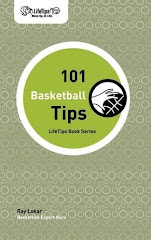I was once fortunate enough to speak to the USA Water Polo Olympic Development Coaches at their Junior Olympics in Orange County, CA. We had a great discussion with some world-class water polo coaches about the effectiveness in embracing Gold Standard Coaching principles in developing elite competitors. Learning in a positive environment, technique changes, managing mistakes and failure, as well as creating a team culture where everyone involved is working towards a common goal. Maybe even especially at the highest levels.
Following our discussion with the coaches, there was a very valuable session on “The Role of the Spectator”. USA Water Polo Director of Officials, Jim Cunningham, gave an informative presentation to parents and spectators about common rules and misperceptions. As in any sport, much of the vitriol directed towards officials is a result of lack of understanding of the rules and their practical applications.
Once the rules were presented I spoke on the importance of a parent and spectator giving their unconditional support and being their son, daughter, and their team’s biggest fan. We emphasized the importance of Personal Best rather than results, being positive by making deposits into Emotional Bank accounts and to always Respect the Game.
As Gold Standard Coaching says Respect the Game, Respect others, and Respect yourself. By applying the life-lessons learned thru sport, Gold Standard Competitors can really create a framework for how they live their lives – even after the ball stops bouncing (or in this case – splashing)
Perhaps most important is the respect for Self. If an individual, or an entire program, sets the highest standards for themselves and lives up to those in their performance and behavior – even when those around them fall short of that – a habit is fostered to always be at your best. That goes for competitors, coaches, and spectators. In other words, compete and support your program with class.
What is class? The best thing about coaching a long time is gathering a whole bunch of great, useful information (and some that may not be as useful too). The bad part of coaching a long time is you don’t always remember where the content came from. I came across this great essay that helps define “class”.
What is class?
It’s something that is hard to define but easy to recognize. It is being a good person, always taking responsibility and sharing consideration for the consequences your actions have for others. It’s having humility, poise, confidence, and above all, tremendous pride.
Classy programs handle victory and defeat the same way – graciously with their heads held high. They don’t brag in victory or make excuses in defeat. Class always shows whether you win or lose. If you have class, you don’t need much of anything else.
It doesn’t cost anymore or take any extra time or energy to have class. Class doesn’t make you any less a competitor, nor any less aggressive. You don’t lose your edge by having class. Class actually gives you an edge on your opponent. You have poise that will allow you to concentrate more, and by concentrating more, you’ll win more. You’ll always have an edge on your opponent because they will waste energy wondering why you have so much class, and wishing they did. And, you’ll have the crowd behind you. In a close contest, it could be the edge you need to win.
Exhibiting class is a responsibility of everyone, administrators, teachers, coaches, players, students, and parents. Everyday, everyone has the opportunity to exemplify class. Treat each other with dignity and respect, and show this to everyone, including opponents and officials. Respect must become a way of life in every program. Encourage all student-athletes to discuss issues, feelings, and frustrations by modeling appropriate behaviors. School atmosphere, attitude, and environment affect the way people behave. If those ideals are elevated to the highest levels, one of the best results will be the respect earned from others.
Everyone involved should direct their efforts to exemplify “respect and sportsmanship” as core values and beliefs.
First class means:
1. Treating others as you would like them to treat you. Be considerate of others.
2. Striving hard to be the best at what you do while taking the needs of others into consideration.
3. Showing confidence in the way you look, the way you dress, and the way you act.
4. Knowing your audience when communicating and always using appropriate language.
5. Keeping our schools neat and clean.
6. Solving our problems creatively by stopping, thinking, and discussing our actions.
7. Never making excuses. Take your lumps and learn from past mistakes.
Class is a quality that others admire because its behavior can be counted on as natural, simple, consistent, and of the highest in all human relationships; it stands the test of time.
USA Water Polo is a great organization. They realize that even great organizations can get better and were trying to get assistance in helping them do so. They even scheduled a tournament to highlight the emphasis on competing in this manner with their Rock-tober 12 & Under Classic.
USA Water Polo is an organization that clearly wants its’ participants to have class.
So should you.

























